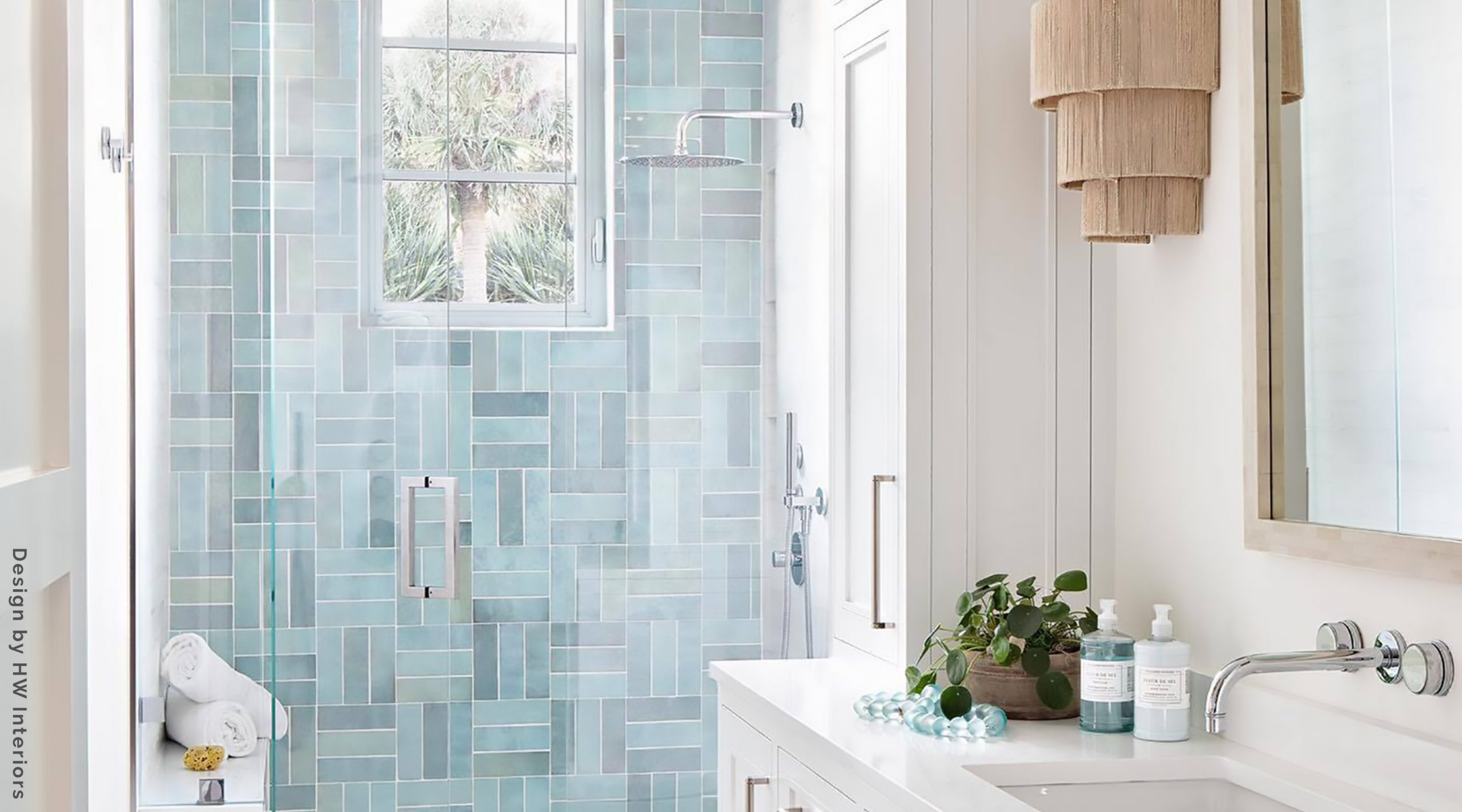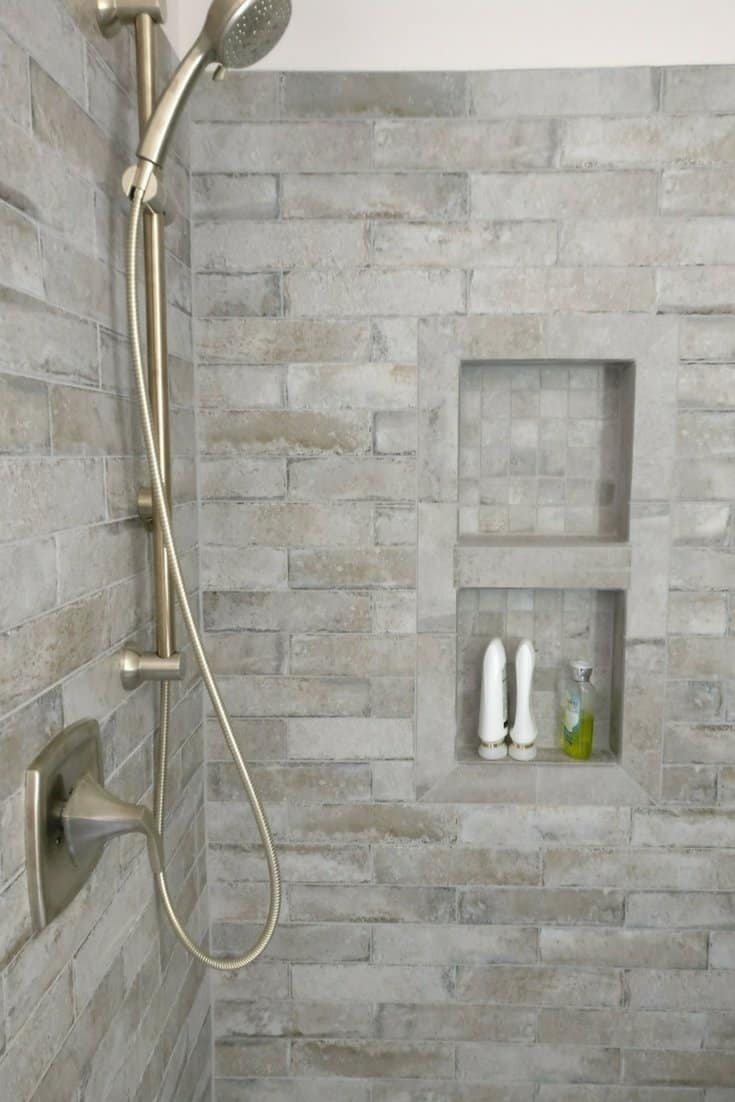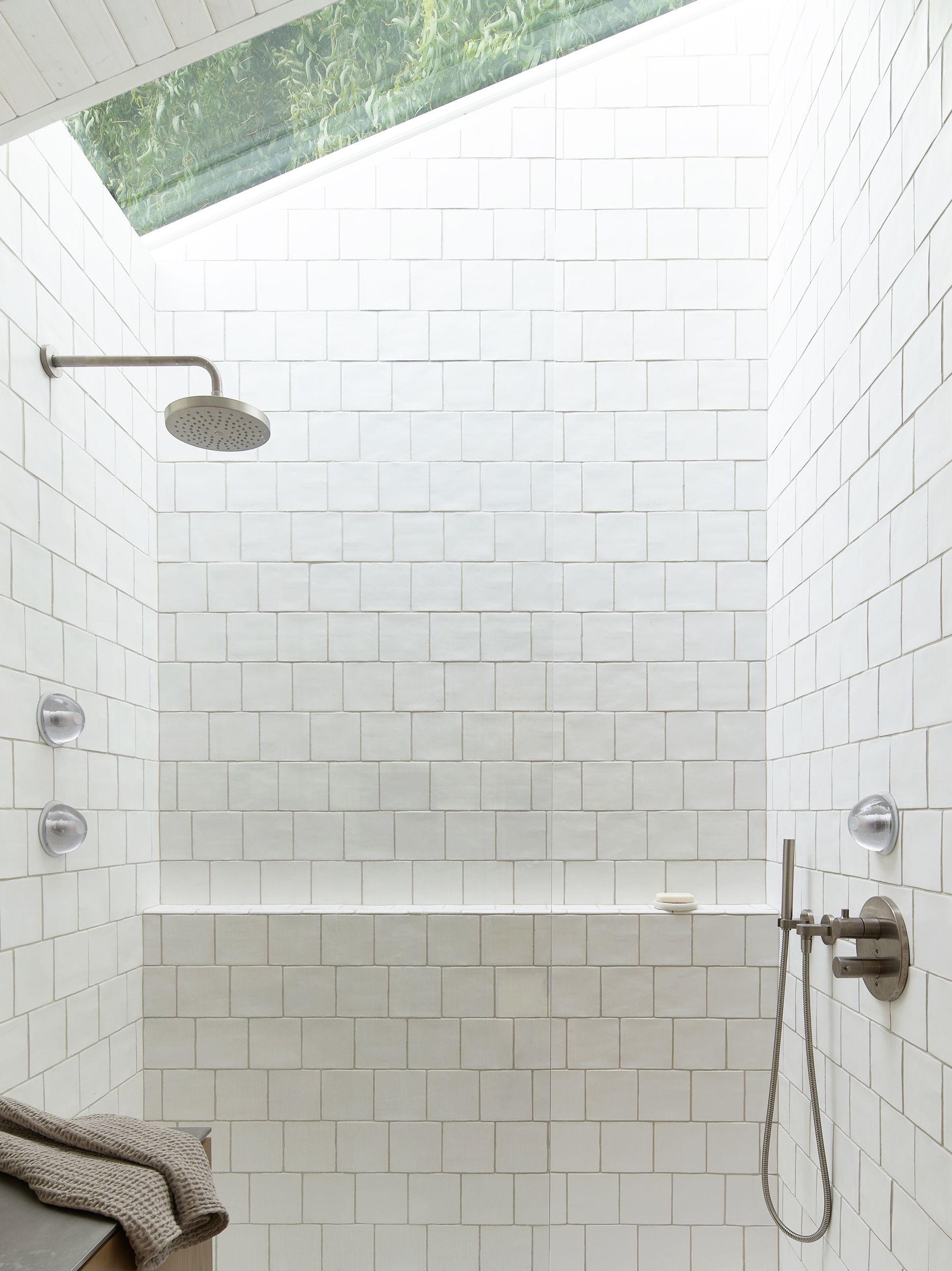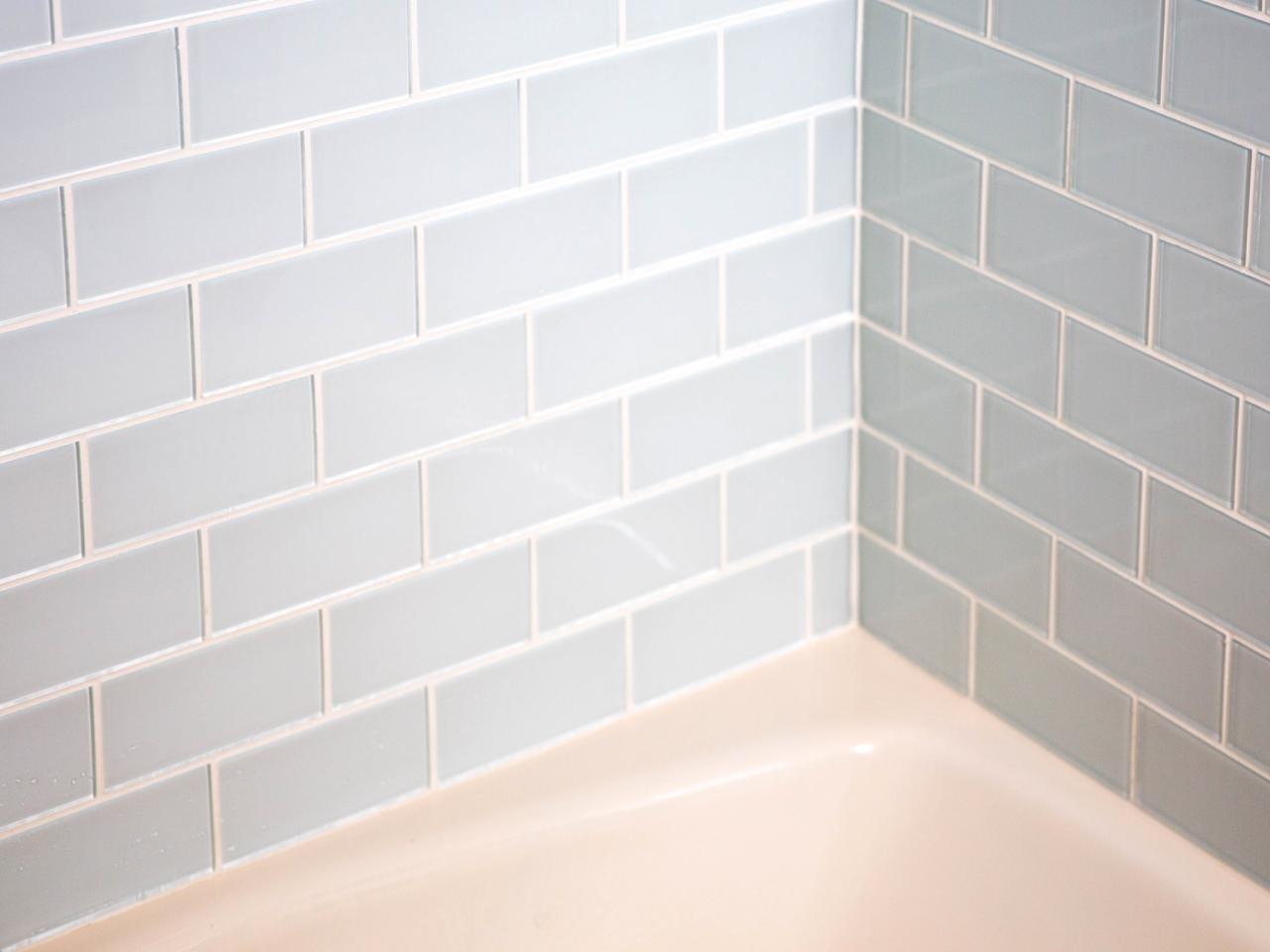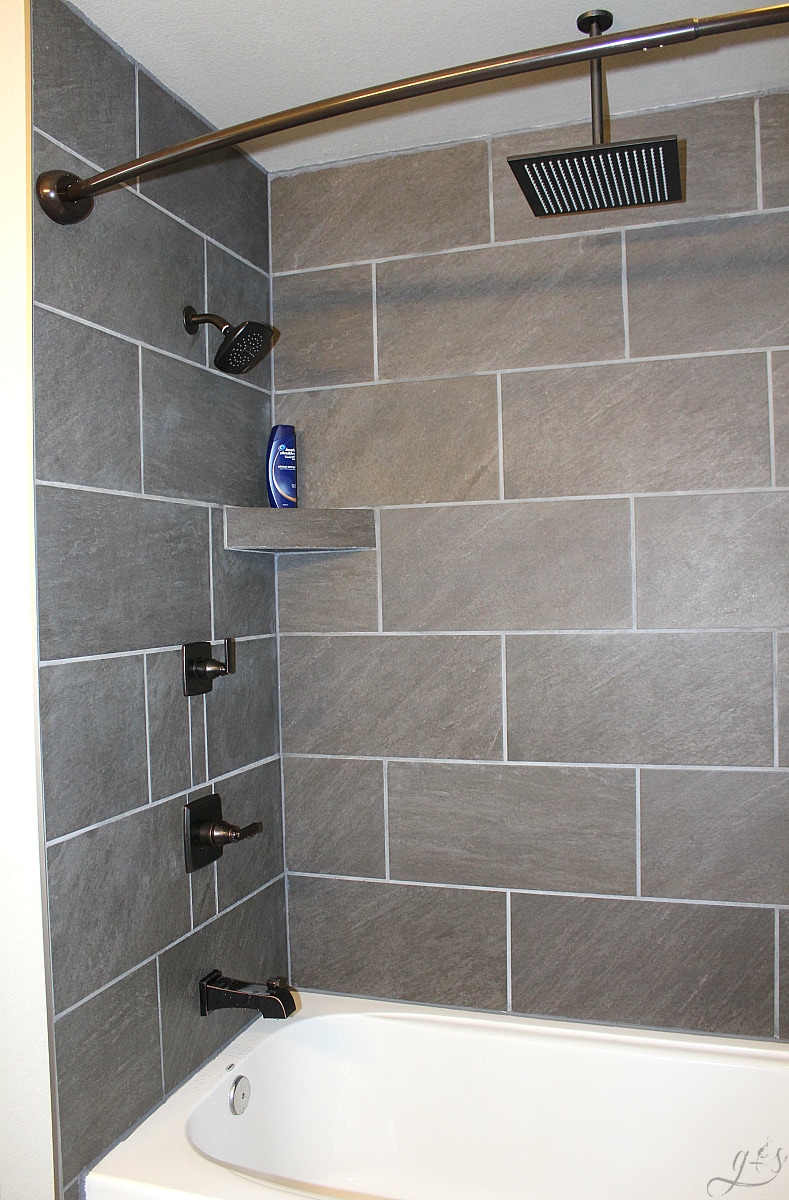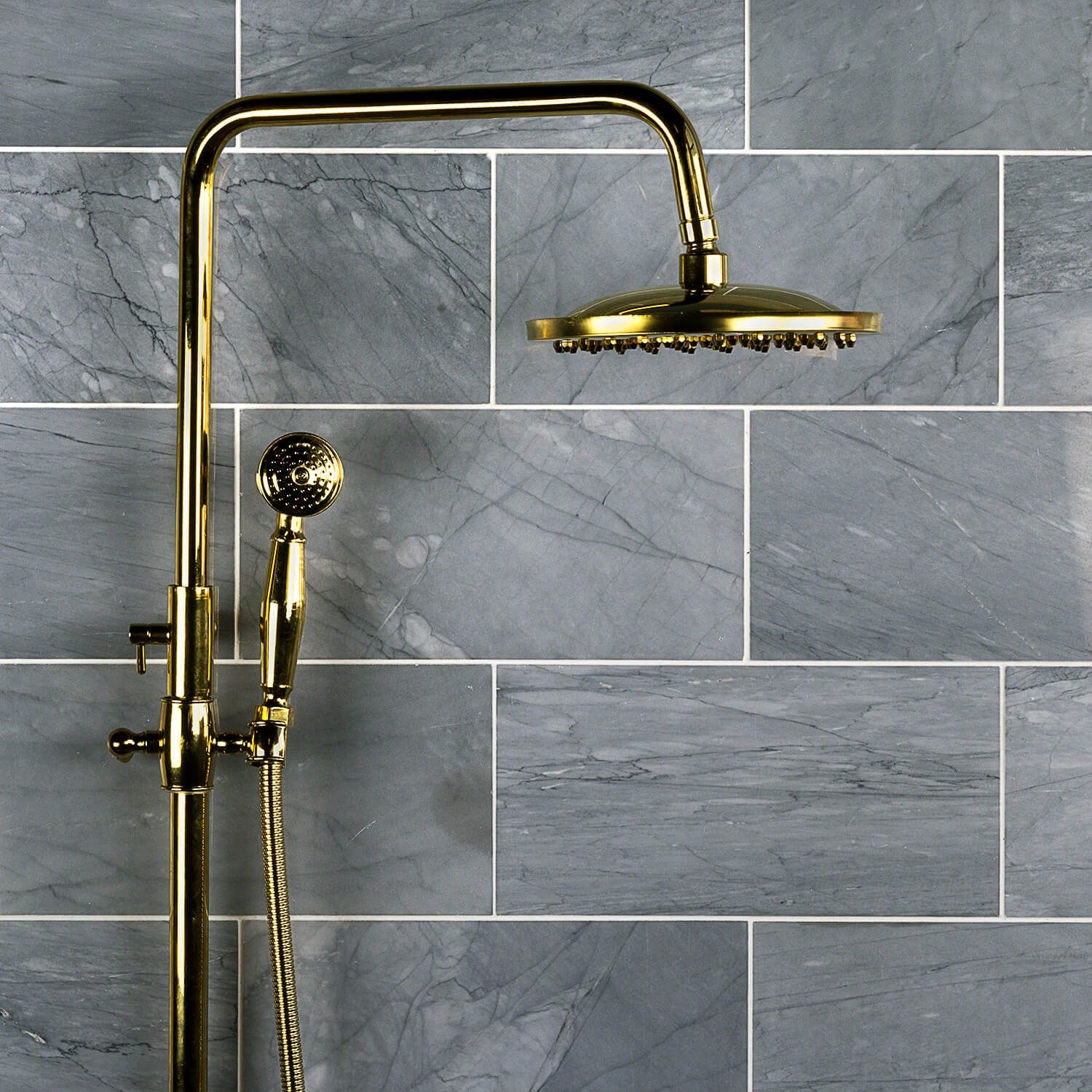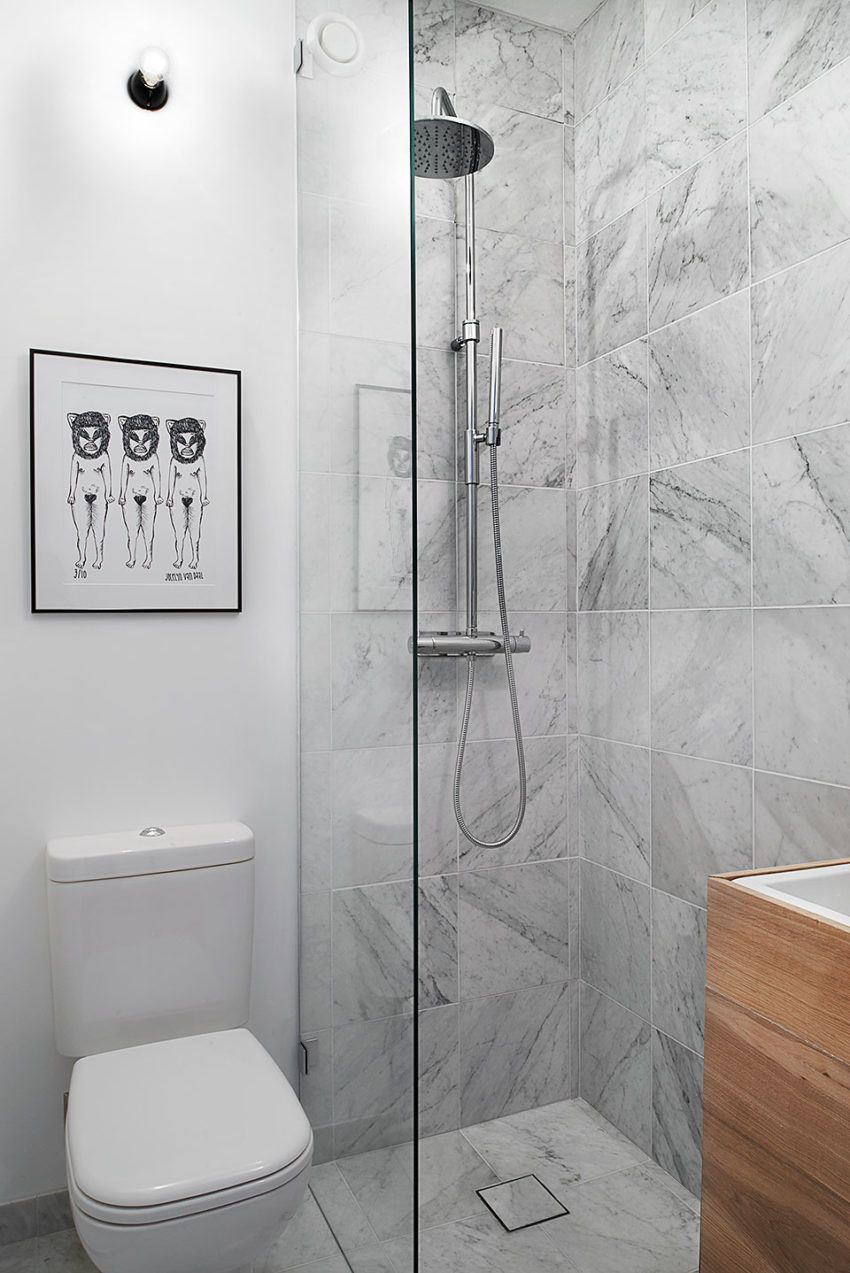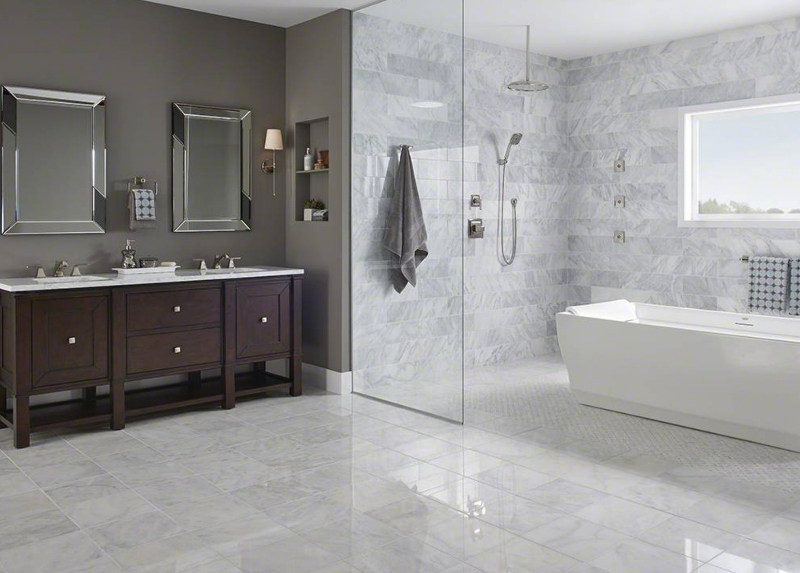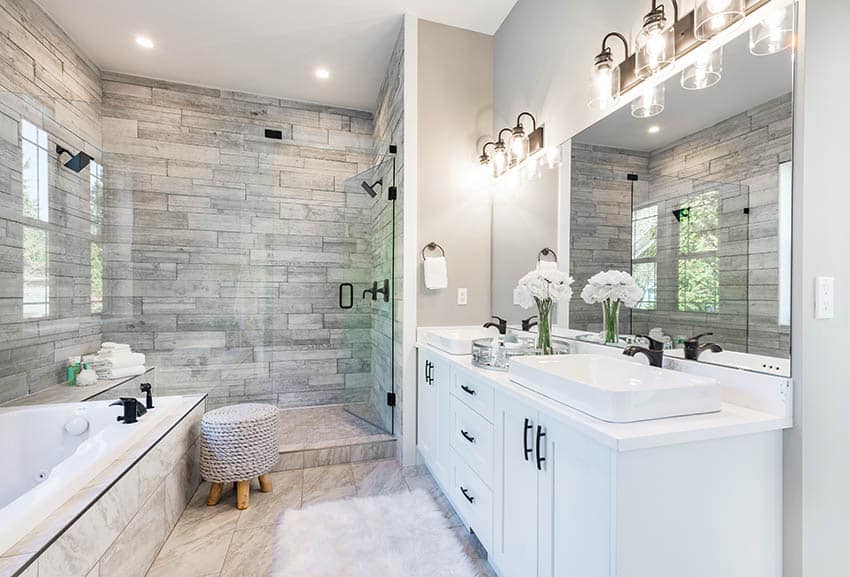Choosing the Right Tile Material for Shower Walls
Selecting the perfect tile material for shower walls is a crucial decision in a bathroom renovation. With numerous options available, making an informed choice can enhance the aesthetics, durability, and functionality of your shower space. Here’s a comprehensive guide to help you choose the right tile material for your shower walls.
- Ceramic Tiles: Ceramic tiles are a popular choice due to their affordability and versatility. They come in a wide range of colors, patterns, and sizes, allowing for creative and customized designs. Ceramic tiles are relatively easy to install and maintain, making them ideal for DIY enthusiasts. However, they may not be as durable as some other materials and can chip or crack under heavy impact.
- Porcelain Tiles: Porcelain tiles are known for their durability and water resistance. They are denser and less porous than ceramic tiles, making them suitable for areas with high moisture levels like showers. Porcelain tiles can mimic the look of natural stone, wood, or even concrete, offering a stylish yet practical solution. Their durability ensures they can withstand the test of time, even in the most frequently used showers.
- Natural Stone Tiles: Natural stone tiles, such as marble, granite, and travertine, provide a luxurious and timeless look. Each stone tile is unique, adding a touch of elegance to your shower walls. However, natural stone requires more maintenance than ceramic or porcelain. It needs to be sealed regularly to prevent water absorption and staining. Despite the maintenance, many homeowners find the beauty and uniqueness of natural stone worth the effort.
- Glass Tiles: Glass tiles are an excellent choice for creating a modern and sleek appearance. They reflect light, making small shower spaces appear larger and more open. Glass tiles come in a variety of colors and finishes, including translucent, opaque, and textured options. While they are easy to clean and resistant to mold and mildew, they can be slippery when wet and may require professional installation due to their delicate nature.
- Mosaic Tiles: Mosaic tiles are small tiles that come pre-assembled on a mesh sheet, making installation easier. They can be made from various materials, including glass, ceramic, and natural stone. Mosaic tiles are perfect for creating intricate patterns and designs, adding a unique touch to your shower walls. Their small size allows for better traction, making them a practical choice for wet areas. However, the numerous grout lines may require more effort to clean and maintain.
- Quarry Tiles: Quarry tiles are unglazed ceramic tiles known for their durability and slip-resistant properties. They are made from natural clay and are typically found in earthy, reddish tones. Quarry tiles are an excellent choice for shower floors due to their rough texture, which provides excellent traction. However, they may not offer the same variety of colors and designs as glazed tiles. Regular sealing is also necessary to prevent water absorption.
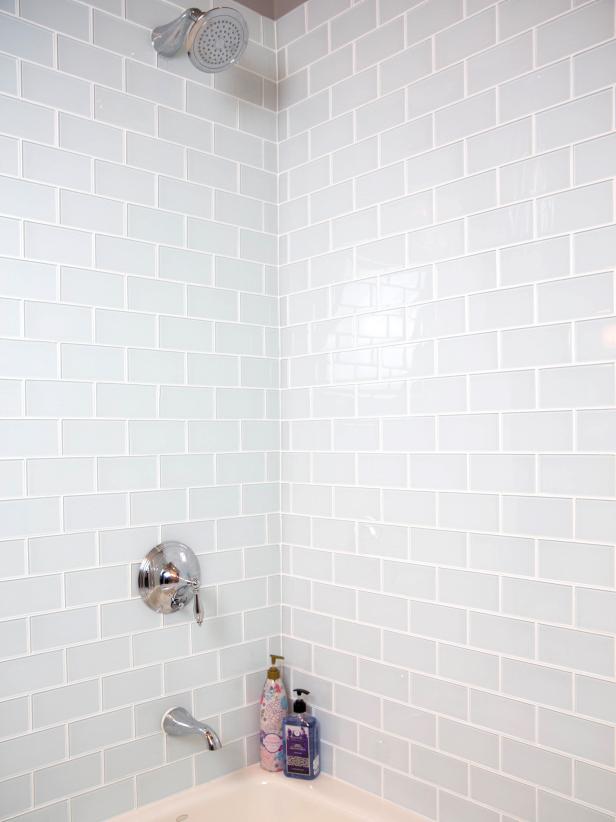
Popular Tile Styles and Designs for Shower Walls
The style and design of shower tiles play a significant role in defining the overall look of your bathroom. With countless options available, choosing the right style can transform your shower into a stunning focal point. Here’s a detailed look at some of the most popular tile styles and designs for shower walls.
Subway Tiles
Subway tiles have been a classic choice for decades, known for their timeless and versatile appeal. Typically rectangular in shape, they can be arranged in various patterns, such as the traditional brick layout, herringbone, or vertical stack. Subway tiles come in a wide range of colors and finishes, from glossy white to matte black, allowing for endless customization. Their clean lines and simple elegance make them suitable for both modern and traditional bathrooms.
Hexagon Tiles
Hexagon tiles add a touch of geometric sophistication to shower walls. Available in various sizes and materials, hexagon tiles can create a striking visual impact. They are particularly popular in contemporary and mid-century modern designs. Small hexagon tiles, often referred to as honeycomb tiles, are ideal for creating intricate patterns and textures. Larger hexagon tiles can make a bold statement and are often used in minimalist and industrial-style bathrooms.
Moroccan Tiles
Moroccan tiles are known for their vibrant colors and intricate patterns, bringing an exotic and artistic flair to shower walls. These tiles are often hand-painted and feature designs inspired by traditional Moroccan art and architecture. Moroccan tiles can be used to create a feature wall or as accents mixed with more neutral tiles. Their unique and eye-catching designs make them perfect for those looking to add a splash of color and culture to their bathroom.
Marble Tiles
Marble tiles exude luxury and elegance, making them a popular choice for high-end bathrooms. Each marble tile is unique, with natural veining and color variations that add depth and character. Marble tiles come in various shades, from classic white and gray to more dramatic black and green. While they require regular maintenance and sealing, the timeless beauty of marble makes it a worthwhile investment. Marble tiles can be used for the entire shower wall or as accent pieces.
Wood-Look Tiles
Wood-look tiles offer the warmth and natural beauty of wood without the maintenance concerns associated with real wood in a wet environment. These tiles are typically made of porcelain or ceramic and are designed to mimic the appearance of natural wood. They come in various shades and finishes, from light oak to dark walnut. Wood-look tiles can create a cozy and inviting atmosphere in your shower, making them ideal for rustic, farmhouse, or spa-inspired bathrooms.
Metallic Tiles
Metallic tiles add a touch of modern glamour and sophistication to shower walls. Available in materials like stainless steel, copper, and aluminum, these tiles can create a sleek and contemporary look. Metallic tiles come in various shapes and finishes, from shiny and reflective to brushed and matte. They are often used as accents or feature walls to add a bit of sparkle and contrast to the bathroom. While they are durable and easy to clean, it’s essential to choose high-quality tiles to prevent issues like rusting and discoloration.
Benefits of Using Tile for Shower Walls
Using tile for shower walls is a popular choice among homeowners and designers due to its numerous advantages. Tiles offer a combination of functionality, durability, and aesthetic appeal, making them an ideal material for wet environments. Here are some key benefits of using tile for shower walls.
Water Resistance
Tiles are inherently water-resistant, making them perfect for shower walls. When properly installed with waterproof grout and sealant, tiles can create an impermeable barrier that protects the underlying structure from moisture damage. This water resistance helps prevent issues like mold, mildew, and rot, ensuring the longevity of your shower.
Durability
Tiles are known for their durability and ability to withstand the rigors of daily use. Materials like porcelain, ceramic, and natural stone are particularly resilient and can last for decades with proper care. Unlike other wall coverings, tiles do not peel, warp, or fade over time, making them a cost-effective and long-lasting option for shower walls.
Easy Maintenance
Maintaining tile shower walls is relatively simple. Most tiles can be cleaned with basic household cleaners and a damp cloth. The non-porous surface of tiles prevents dirt and grime from penetrating, making it easier to keep them clean and hygienic. Additionally, tiles are resistant to stains and odors, ensuring that your shower remains fresh and pleasant.
Aesthetic Versatility
Tiles come in an endless variety of colors, shapes, sizes, and finishes, allowing for limitless design possibilities. Whether you prefer a sleek, modern look or a more traditional, rustic style, there’s a tile option to suit your taste. The ability to mix and match different tiles and patterns enables you to create a unique and personalized shower space that reflects your style.
Heat Resistance
Tiles are excellent conductors of heat, making them compatible with underfloor heating systems. This feature is particularly beneficial in showers, where warm tiles can enhance comfort and provide a spa-like experience. The heat resistance of tiles also means they won’t be damaged by hot water or steam, maintaining their integrity and appearance over time.
Eco-Friendly Options
Many tiles are made from natural and sustainable materials, making them an eco-friendly choice for shower walls. Options like recycled glass tiles and natural stone tiles have a lower environmental impact compared to synthetic materials. Additionally, the longevity and durability of tiles reduce the need for frequent replacements, further minimizing their environmental footprint.
Installation Tips for Bathroom Shower Tiles
Proper installation is crucial for ensuring the longevity and performance of bathroom shower tiles. A well-installed tile surface not only enhances the aesthetic appeal of your shower but also provides a durable and waterproof barrier. Here are some essential tips to help you achieve a successful tile installation for your bathroom shower.
Prepare the Surface
Before installing tiles, it’s vital to prepare the shower walls properly. Ensure that the surface is clean, dry, and free from any debris or old adhesive. If the walls are uneven or damaged, repair them to create a smooth and stable surface. Using a waterproof backer board or cement board as a substrate can provide additional stability and moisture resistance.
Choose the Right Adhesive
Selecting the appropriate adhesive is critical for a successful tile installation. Use a high-quality thin-set mortar designed for the type of tile you’re installing. For porcelain and natural stone tiles, a modified thin-set is recommended for better adhesion. Apply the adhesive evenly using a notched trowel, ensuring full coverage on the back of each tile to prevent gaps and ensure a secure bond.
Plan Your Layout
Planning the tile layout before starting the installation is essential for achieving a professional finish. Measure the shower walls and mark the center points to ensure symmetrical placement. Dry lay the tiles to determine the best arrangement and minimize the need for cutting. Consider using spacers to maintain consistent grout lines and achieve a uniform look. Starting from the bottom and working your way up can help prevent tiles from slipping during installation.
Cut Tiles Accurately
Accurate cutting is crucial for a precise and seamless tile installation. Use a tile cutter or wet saw to make clean and accurate cuts. Measure and mark the tiles carefully before cutting, and wear safety goggles to protect your eyes. For intricate cuts around fixtures or corners, consider using a tile nipper or a hole saw attachment. Taking the time to cut tiles accurately will ensure a professional-looking result.
Grout and Seal
Once the tiles are installed and the adhesive has cured, it’s time to apply grout. Choose a grout color that complements your tiles and enhances the overall design. Mix the grout according to the manufacturer’s instructions and apply it using a rubber float, pressing it into the joints. Wipe off excess grout with a damp sponge and allow it to cure. After the grout has dried, apply a grout sealer to protect it from moisture and stains.
Ensure Proper Waterproofing
Proper waterproofing is essential to prevent water damage and ensure the longevity of your tile installation. Use a waterproof membrane or waterproofing paint on the shower walls before tiling to create an impermeable barrier. Pay special attention to seams, corners, and joints to ensure complete coverage. Additionally, consider using waterproof grout and sealant to enhance the overall water resistance of your shower.
Maintaining and Cleaning Shower Wall Tiles
Maintaining and cleaning shower wall tiles is essential to keep them looking pristine and to ensure their longevity. Proper care and regular maintenance can prevent the buildup of grime, mold, and mildew, preserving the beauty and functionality of your shower tiles. Here are some effective tips for maintaining and cleaning shower wall tiles.
Regular Cleaning Routine
Establishing a regular cleaning routine is crucial for keeping shower wall tiles in top condition. Wipe down the tiles after each use to remove soap scum, water spots, and residue. Use a squeegee or a microfiber cloth to prevent moisture from sitting on the surface, which can lead to mold and mildew growth. Regular cleaning not only maintains the appearance of the tiles but also helps prevent long-term damage.
Use Mild Cleaners
When cleaning shower wall tiles, it’s important to use mild, non-abrasive cleaners to avoid damaging the tile surface and grout. A mixture of water and mild dish soap or a vinegar and water solution can effectively clean most tiles. Avoid using harsh chemicals, bleach, or abrasive scrubbing pads, as they can scratch and dull the tiles. For stubborn stains, consider using a soft brush or a non-abrasive sponge.
Address Mold and Mildew Promptly
Mold and mildew thrive in damp environments, making showers a common breeding ground. To prevent and address mold and mildew, ensure proper ventilation in the bathroom by using an exhaust fan or opening windows. If you notice any mold or mildew on the tiles or grout, clean it immediately with a mixture of water and vinegar or a commercial mold remover. Scrub the affected areas with a soft brush and rinse thoroughly.
Seal Grout Lines
Grout is porous and can absorb moisture and stains, leading to discoloration and deterioration over time. Sealing grout lines can help protect them from moisture, stains, and mold growth. Apply a grout sealer according to the manufacturer’s instructions, ensuring complete coverage. Reapply the sealer periodically, as recommended, to maintain its effectiveness. Sealing grout lines can significantly extend the life of your tile installation.
Avoid Hard Water Buildup
Hard water can leave mineral deposits and limescale on shower wall tiles, dulling their appearance and making them difficult to clean. To prevent hard water buildup, wipe down the tiles regularly and use a water softener if your home has hard water. For existing limescale, use a vinegar solution or a commercial limescale remover to dissolve the deposits. Gently scrub the affected areas with a soft brush and rinse thoroughly.
Inspect and Repair Tiles
Regularly inspect your shower wall tiles for any signs of damage, such as cracks, chips, or loose tiles. Address any issues promptly to prevent further damage and ensure the integrity of the tile installation. Replace damaged tiles and re-grout areas with missing or deteriorated grout. Proper maintenance and timely repairs can keep your shower wall tiles looking great and functioning effectively for years to come.
Waterproofing and Grout Options for Shower Tiles
Effective waterproofing and selecting the right grout are critical components of a successful shower tile installation. Proper waterproofing prevents water damage, while the right grout enhances the durability and appearance of the tiles. Here’s an in-depth look at waterproofing techniques and grout options for shower tiles.
Waterproof Membranes
Waterproof membranes are essential for preventing water from penetrating the substrate and causing damage. These membranes can be applied as a liquid coating or as a sheet membrane. Liquid waterproofing membranes are applied with a brush or roller, creating a seamless barrier. Sheet membranes, made of rubberized asphalt or polyethylene, are adhered to the substrate, providing a durable and flexible waterproof layer. Both types are effective in ensuring a watertight shower.
Cement Backer Board
Using cement backer board as a substrate for shower tiles adds an extra layer of protection against moisture. Cement backer boards are water-resistant and provide a stable base for tile installation. They are more durable than traditional drywall and do not degrade when exposed to water. Installing cement backer board with waterproofing membranes can create a robust and long-lasting waterproof barrier.
Epoxy Grout
Epoxy grout is a popular choice for shower tiles due to its superior water resistance and durability. Unlike traditional cement-based grout, epoxy grout is made from a combination of resin and hardener, creating a non-porous and stain-resistant surface. Epoxy grout is resistant to mold and mildew, making it ideal for wet environments. It is available in various colors, allowing for design flexibility. However, epoxy grout can be more challenging to work with and may require professional installation.
Sanded vs. Unsanded Grout
Choosing between sanded and unsanded grout depends on the size of the grout lines and the type of tiles used. Sanded grout contains fine sand particles, providing additional strength and preventing shrinkage. It is suitable for grout lines wider than 1/8 inch and is commonly used with ceramic and natural stone tiles. Unsanded grout, on the other hand, is smooth and preferred for narrower grout lines and delicate tiles, such as glass and polished stone. Both types can be sealed to enhance water resistance.
Grout Sealers
Applying a grout sealer is essential for protecting grout lines from moisture, stains, and mold. Grout sealers come in two main types: penetrating and membrane-forming. Penetrating sealers soak into the grout, providing long-lasting protection without altering the appearance. Membrane-forming sealers create a protective layer on the grout surface but may affect the grout’s color and texture. Regularly applying grout sealer can extend the life of the grout and maintain its appearance.
Silicone Caulk
Silicone caulk is used to seal joints and corners where tiles meet walls, floors, or fixtures. It provides a flexible and waterproof seal, preventing water from seeping into gaps and causing damage. Silicone caulk is available in various colors to match the grout and tiles. It should be applied after the grout has cured and periodically inspected and replaced as needed to maintain an effective waterproof barrier.
Budget Considerations and Cost-Effective Tile Options
Renovating a bathroom can be a significant investment, but it doesn’t have to break the bank. With careful planning and smart choices, you can achieve a stylish and functional shower without overspending. Here are some budget considerations and cost-effective tile options for your shower walls.
Set a Realistic Budget
Setting a realistic budget is the first step in any renovation project. Determine how much you’re willing to spend on the shower tile installation, including materials, labor, and any additional costs. Allocate a portion of the budget for unexpected expenses that may arise during the project. Having a clear budget will help you make informed decisions and prioritize spending on essential items.
Choose Affordable Tile Materials
Several affordable tile materials offer durability and aesthetic appeal without the high price tag. Ceramic tiles are one of the most cost-effective options, available in various colors, patterns, and finishes. Porcelain tiles are slightly more expensive but offer superior durability and water resistance. Both ceramic and porcelain tiles can mimic the look of more expensive materials, such as natural stone or wood, providing a stylish yet budget-friendly solution.
Consider Tile Alternatives
If traditional tiles are outside your budget, consider tile alternatives that can achieve a similar look. Vinyl tiles and laminate panels are affordable options that are easy to install and maintain. They come in various designs, including those that mimic the appearance of ceramic, porcelain, and natural stone tiles. While they may not offer the same longevity as traditional tiles, they can be a cost-effective solution for budget-conscious renovations.
Buy in Bulk and Look for Sales
Purchasing tiles in bulk can often lead to significant savings. Many suppliers offer discounts for large orders, making it more cost-effective to buy all the tiles needed for the project at once. Additionally, look for sales, clearance events, and discounts at local tile stores and online retailers. Buying tiles during these promotions can help you get high-quality materials at a fraction of the regular price.
DIY Installation
Installing tiles yourself can save a considerable amount of money on labor costs. With the right tools and some basic knowledge, many homeowners can successfully tackle a tile installation project. There are numerous online tutorials, videos, and resources available to guide you through the process.
Halley Gray 6×12 Polished Marble Subway Tile for Wall
Stylish Shower Wall Tile Ideas For The Modern Home
Backsplash Tile Shower Surrounds to Inspire Your Bathroom Design
Best Tile for Shower Walls – Designing Idea
Related Posts:
